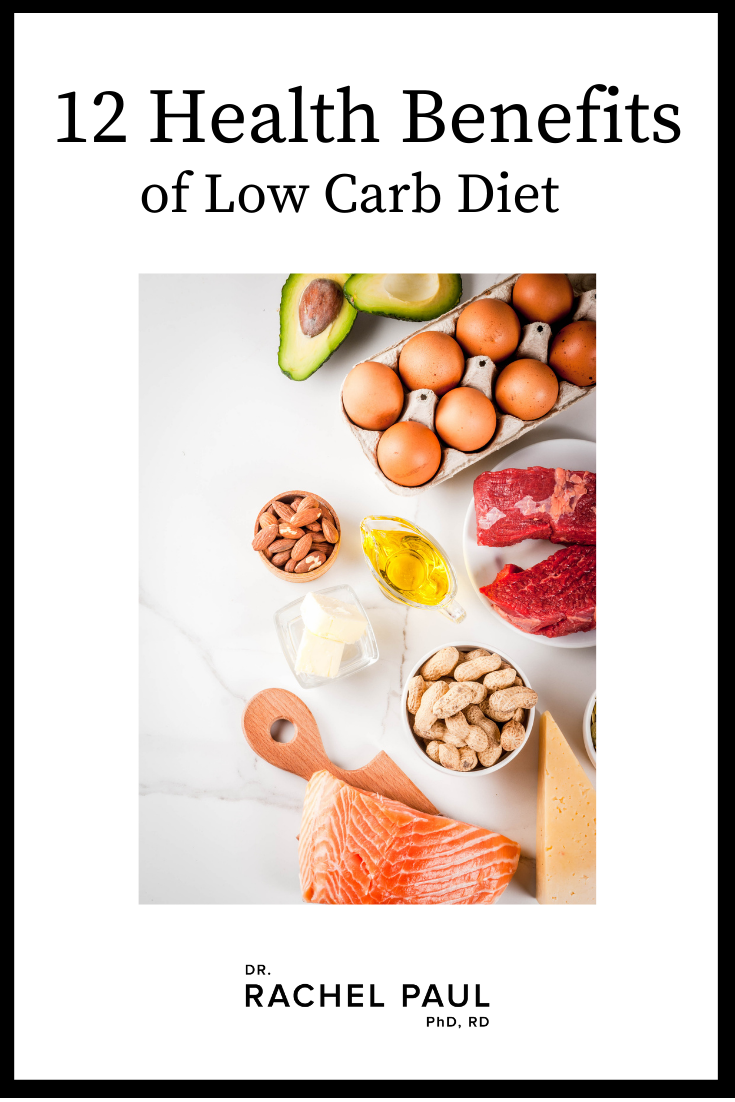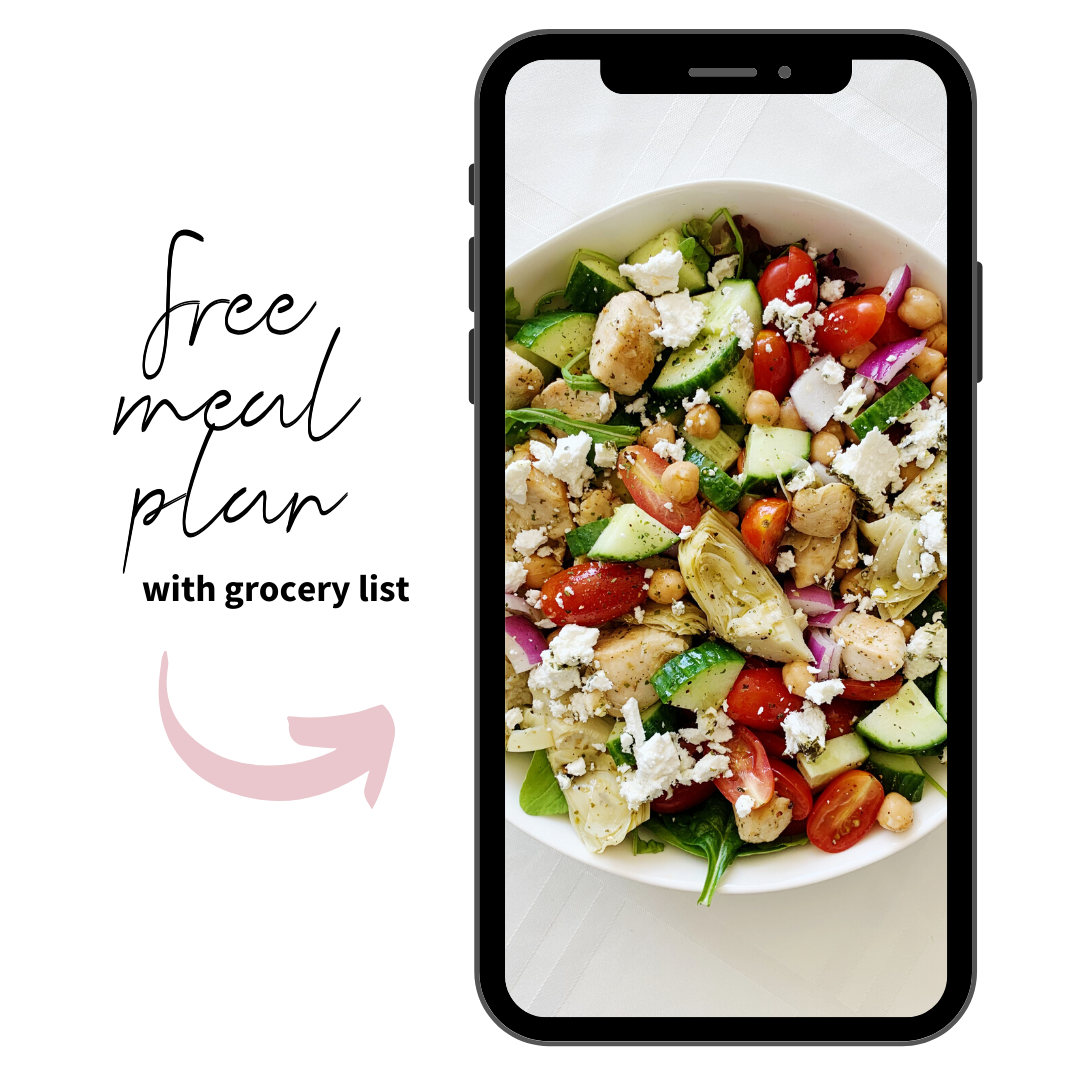12 Health Benefits Of Low Carb Diet
A low carb aka a low carbohydrate diet is a diet that limits carbohydrate intake while focusing on eating protein and fat.
There are different types of low carb diets, and they are generally used for weight loss, or when people can’t eat certain foods.
Despite the fact that most people decide to eat a low carb diet just to lose weight and reach their weight loss goals, a low carb diet actually has more benefits and health benefits other than weight loss, and so in this post, I’m sharing a roundup of the different health benefits of a low carb diet.
12 Health Benefits Of Low Carb Diet
Controlling Blood Sugar Levels
Low carb and ketogenic diets are usually very beneficial for diabetic people and people that struggle with blood sugar levels. Many studies have shown that low-carb diets lower your blood sugar levels.
Even if you’re not diabetic, being able to control your blood sugar levels can help with your health a lot because it will help prevent getting diabetes in the future.
High blood sugar levels increase the risk of diabetes, so a low-carb diet can be used as prevention since it lowers your blood sugar levels.
So, following a low carb diet can be beneficial for you even if you don’t have diabetes, but especially if you do.
Reduced Insulin Levels
Another thing that low carb and ketogenic diets help with, is reducing insulin levels. This can also be very useful for people with diabetes, since insulin has a huge impact on diabetes.
One study has shown people with type 2 diabetes had a positive impact on their health by reducing carbs.
Improving Triglyceride Levels
Triglycerides, which are fat molecules, get drastically lower when you cut carbs. Lowering your triglyceride levels is great for your health, and a low carb diet can help you lower them.
Increasing Good Cholesterol In The Body
In case you didn’t know about it, there’s a type of cholesterol that’s actually good for you, called HDL.
When you have more good cholesterol than bad cholesterol in your body, you have lower chances of getting a heart disease.
So, how do you get more HDL? Well, a great way to up your good cholesterol levels, is to eat more fat. High fat diets help with HDL, and since low carb diets focus on protein and fats, you’ll be eating more fats than you do when you’re on a high-carb diet, which will help you get more good cholesterol.
Controlling Bad Cholesterol In The Body
The opposite of HDL is LDL, known as bad cholesterol.
The more bad cholesterol you have, the bigger chances you have of a heart attack and heart diseases.
A low carb diet helps reduce the number of bad cholesterol particles you have in your body, which lowers your chances of getting a heart attack or heart disease.
Weight Loss
Since we already covered that the main reason people decide to eat a low carb diet is to lose weight, it’s obvious that one of the benefits of low carb and ketogenic diets is weight loss.
Being on a low carb diet helps you get rid of excess water in your body, which reduces your insulin levels and helps with weight loss.
It also helps you get rid of excess fat easier.
Possibly Lowering Blood Pressure
Cutting carbs often helps lower your blood pressure, which lowers the risk of heart attack, kidney failure, heart diseases, and strokes.
Possibly Preventing Or Managing Type 2 Diabetes
Since a low carb diet helps control your blood sugar levels and insulin levels, and it lowers them, it can help prevent or manage type 2 diabetes. Blood sugar and insulin levels are two very important metrics for type 2 diabetes, so a diet that lowers your blood sugar and insulin levels is most likely a good idea.
Reducing Your Appetite
Reducing your carb intake will help reduce your appetite and calorie intake.
Improving Your Metabolism
Having a good metabolism helps with weight loss, staying in shape, and your overall health and well-being.
A low carb diet is great for your metabolism, and it improves it, which helps with digestion, blood sugar, and more.
Lowering Risk Of Heart Disease
It was thought that a side effect of eating a high-fat diet (and low carb diets are high in proteins and fats) is a rise in bad cholesterol.
However, many studies have shown that there is no connection between replacing carbs with protein and fat (healthy fats, not saturated fat), and bad cholesterol levels.
Furthermore, increasing good cholesterol, reducing bad cholesterol, lowering your blood pressure, all of it helps lower the risk of getting a heart disease.
Helps Your Brain
Low carb diets have been said to help your memory and your brain health overall. The ketogenic diet has been used to treat children with epilepsy, especially those who don’t respond to drugs.
So, a low carb diet can help boost your memory, keep your brain healthy, and treat certain brain diseases.
Low Carb Recipes
Now that you know all of the health benefits of low carb diets, here are some of my favorite low carb recipes:
“Big Mac” Salad
413 calories
Ingredients:
2 cups Leafy greens, lettuce, raw - 10 calories
4 oz Ground beef, 90% lean, raw - 185 calories
¼ cup Cheese, shredded, cheddar - 114 calories
1 oz Pickles, chip-cut - 0 calories
½ cup Tomatoes, grape - 16 calories
¼ Onion, red - 13.75 calories
1 Tbsp Creamy dressing (e.g. ranch), regular (more than 50 calories per 2 tbsp) - 74 calories
1 Salt, dash - 0 calories
Instructions:
Spray a pan with an oil spray. Add in beef & stir fry until no longer pink, ~7 minutes.
Combine all ingredients in a bowl.
Top with salt & dressing.
Note: I’m using a sriracha ranch dressing here, but you can use ranch, 1000 island, or whatever else you like.
No beef? Use ground turkey, tofu, or beans. No dairy? Use bacon or avocado, and a vinaigrette.
Feta Tomato Pasta with Spaghetti Squash
498 calories
Ingredients:
3 oz Feta, block - 225 calories
2 cups Tomatoes, grape - 64 calories
1 Tbsp Olive oil (Tbsp) - 119 calories
1 Salt, dash - 0 calories
1 Pepper, dash - 0 calories
1 tsp Garlic, minced (tsp) - 0 calories
2 cups Squash, spaghetti - 90 calories
Instructions:
Preheat oven to 400 deg F.
Spray a small casserole dish with an oil spray.
Add in tomatoes. Top with olive oil, garlic, and spices, mix so everything is coated.
Add in feta cheese in the center of the casserole dish.
Slice spaghetti squash if you haven’t already (be careful!).
Line a baking sheet with tin foil or parchment paper & spray it with an oil spray. Put spaghetti squash on top of baking sheet, cut side down.
Bake casserole dish with tomatoes & feta, and spaghetti squash for 40 minutes.
Mix tomato & feta mixture until creamy.
Shred spaghetti squash with a fork, add spaghetti squash to casserole dish & mix in.
Note: 2 cups cooked spaghetti squash = about 1/2 a spaghetti squash
No dairy? Dice up 4 oz raw chicken to cook in place of the feta, & add another 1 tsp oil.
French Onion Chicken Skillet
476 calories
Ingredients:
⅓ cup Broth, chicken or beef - 11.55 calories
1½ Onion, yellow - 82.5 calories
6 oz Chicken breast, boneless, skinless, raw - 190 calories
⅓ cup Cheese, shredded, mozzarella - 112 calories
2 tsp Olive oil (tsp) - 80 calories
1 Garlic salt, dash - 0 calories
1 Pepper, dash - 0 calories
Instructions:
Slice chicken and onion into bite sized pieces.
Add oil to pan.
Cook chicken and onion for ~10 minutes on medium-low heat, until chicken has cooked through and the onion is fragrant (you’ll know!).
Add in broth and top with cheese and seasonings, simmer on low heat at least 5 minutes.
No chicken? Use tofu, fish, or beans. No beef broth? Use chicken or vegetable broth. No dairy? Use a dairy-free cheese, or more oil.
Note: some people may experience gastrointestinal discomfort from a large portion of onions. If this is you, swap out the onions for another veg, e.g. eggplant, peppers.
You can find more in my meal plan!






